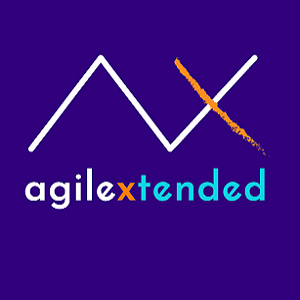The Arts of Problem Solving
Complexity defines today’s reality for organizations and leaders. The most effective response to complexity is emergence: the ability to surface new possibilities as situations evolve. AOPS (Art of Problem Solving) cultivates this capability by expanding how organizations approach problem-solving, drawing on insights from a diverse range of disciplines to unlock new ways of thinking.
Just as in improvisation, where one idea sparks another, integrating multiple perspectives disrupts habitual thinking and reveals possibilities that remain hidden in siloed approaches. This expanded problem-solving capacity empowers organizations to break through stagnation, make sharper decisions, and adapt creatively under pressure—ensuring forward momentum in even the most complex environments.
AOPS brings a unique approach to tackling complex challenges by combining three powerful principles:
1. Expanding Perspectives
AOPS starts by broadening how people see and engage with problems. It creates space for individuals to contribute their unique insights and encourages teams to question assumptions, reveal blind spots, and uncover opportunities others might miss. This approach brings clarity to complexity and sharpens the focus on what truly matters.
2. Layering Expertise Across Disciplines
The best solutions come from combining knowledge, not limiting it. AOPS draws on proven practices from fields as diverse as design, science, and communication. By layering these insights, AOPS equips organizations with a broader toolkit of options, enabling them to tackle challenges from multiple angles and stack the odds in their favor—like adding extra tiles in a game of Scrabble to build bigger, more impactful words.
3. Adapting to Complexity Through Collaboration
Complex challenges are rarely solved in isolation. AOPS thrives on collaboration, bringing together people with diverse expertise to co-create solutions. By encouraging exploration and iteration, AOPS helps teams navigate ambiguity, test bold ideas, and refine their approach until the right path emerges.
Part of our playbook
-

Compass for Agility
The Compass for Agility is a pragmatic and personalized approach to explore how and why behavior change (both individually and collectively) can lead to outcomes such as resilience, innovation, and equity. This builds fluency in experimenting, learning, adapting, and succeeding.
-

Trust Workshop
Trust can be hard to measure but we instinctively and measurably know that people do better in high-trust organizations. Look at the stream of business books based on this key topic as an indication. But how do you actually create and hold on to this key variable in the chaos of running an organization and delivering work?
-

Empathy Workshop
Explore the role of empathy as a trigger for change in achieving organizational outcomes such as agility, innovation, and resilience. Learn specific techniques to deepen and demonstrate empathy through their own actions. You will also be able to leverage gamification principles to cultivate empathy in your organizational culture.
-

Co-Lab
Our signature culture collaboration laboratory sessions are designed to foster collaboration and experimentation within organizations. Our intent is to invite everyone into the culture journey instead of just relying on carefully selected tiger teams.
Co-Lab creates the time and space for of discovery, innovation, and integration. It’s where concepts such a collaboration can be practiced and then become part of the new normal.
-

Lean Into Lean
Lean practices are unique in their ability to provide situational awareness at scale. However, too many Lean efforts gloss over the foundational elements of structure and shared understanding (blueprints) that enable organizations to pursue multiple transformation initiatives successfully.
Learn more about our reimagined light-weight versions of classics include value stream mapping, gemba walks and more.
-

Equitable Agility
Our Equitable Agility workshop is designed for change agents and helps incorporate inclusive principles into Agile frameworks and practices. It is an experiential and pragmatic way to incorporate a dose of equity into achieving an Agile mindset.
Discover how techniques from our accessibility toolkit can improve pain points like estimation, risk mitigation, and team cohesion, to name a few.
What drives us …
“I am no longer accepting the things I cannot change. I am changing the things I cannot accept.”
— Angela Davis

